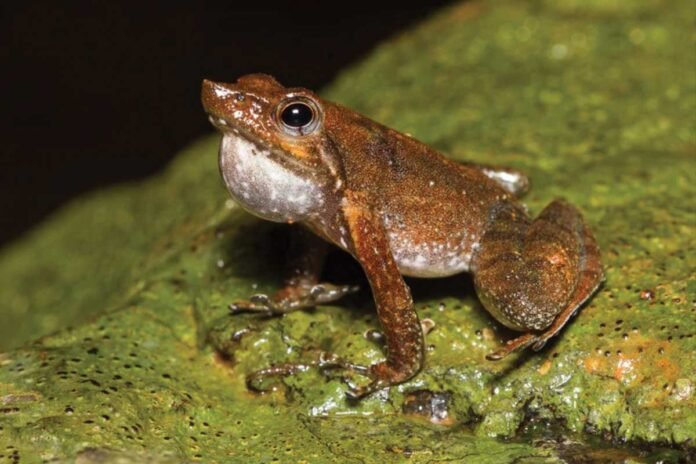A recent study titled ‘Ongoing declines for the world’s amphibians in the face of emerging threats,’ published in the Nature journal, highlights significant dangers faced by amphibians worldwide, especially due to Climate Change.
The Wildlife Trust of India, a nature conservation organization, has identified the dancing frogs found exclusively in the Western Ghats as the most threatened amphibian genus in India.
These dancing frogs belong to the Micrixalus genus, and they face severe threats to their survival.
The study conducted the second Global Amphibian Assessment, analyzing 8,011 species worldwide, revealing alarming statistics about the plight of amphibians.
It specifically emphasized the vulnerability of the elusive dancing frogs residing in the Western Ghats, highlighting their endangered status.
Climate change emerged as a major and direct threat to amphibians in addition to habitat loss, diseases, fires, invasive species, and overexploitation.
Among the 426 species evaluated in India, 139 were found to be at risk, signaling a concerning situation for these creatures.
The Western Ghats, spanning across Kerala, Karnataka, and Tamil Nadu, boasts remarkable amphibian diversity.
Of these three states, Kerala leads with 178 species, out of which 84 are under threat. Tamil Nadu follows with 128 species, of which 54 face threats, while Karnataka houses 100 species, with 30 classified as threatened.
Presently, conservation efforts are focused on five species: the Deccan Night Frog (Endangered), Resplendent Shrub Frog (Endangered), Kadalar Swamp Frog (Endangered), Anaimalai Flying Frog (Vulnerable), and Meowing Night Frog (Near Threatened). These species are currently receiving special attention to protect them from extinction.





